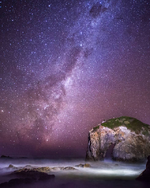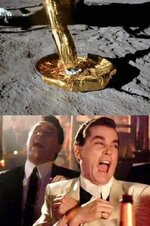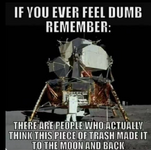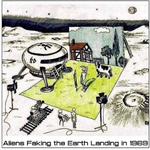The worst part about the moon landing is that WE DONT HAVE ANY REAL PHOTOS OF THE EARTH WHIlE THEY WERE UP THERE!
You are using an out of date browser. It may not display this or other websites correctly.
You should upgrade or use an alternative browser.
You should upgrade or use an alternative browser.
Did Man Land On The Moon?
- Thread starter Rax Moscow
- Start date
Setting up a base would (I guess) be vastly more expensive and complex than just making a quick visit. Also, I'm not sure what a moon base would accomplish that a space station wouldn't.Plan to set a base to launch from there to Mars, to start to colonize it. First country to do so will control its resources.
Set up spy ops to monitor earth.
By the way, what did we get out of going to the moon in the first place? Why do it to begin with? Because Russia was trying?
Spy ops can be done with satellites.
About what we got out of supposedly going in the first place, even if you believe the official story I think you'd still have to admit that the main point of the original missions was to show up the USSR. There's a normie Russian blogger I read who worked in Soviet propaganda when he was young and takes questions from westerners. His response to why the Soviets gave up on the race to the moon was that we didn't have the money, knew we didn't have it, and we also knew that it was all basically a big pissing contest and decided to spend what money we had on more practical things. He said it still hurt to lose to the Americans though.
There will be neither a base on the moon nor on Mars. What are you talking about? You must have seen too many sci-fi movies. No human being will ever cross the Van Allen Belt alive. Stop this colonizing garbage.Plan to set a base to launch from there to Mars, to start to colonize it. First country to do so will control its resources.
There will be neither a base on the moon nor on Mars. What are you talking about? You must have seen too many sci-fi movies. No human being will ever cross the Van Allen Belt alive. Stop this colonizing garbage.
They still buy their Teslas 'to save the world' though.
Yes. I more or less buy the normie idea of how space works and even a base on the Moon seems highly improbable to me. The idea of human beings making it all the way to Mars, let alone going there and coming back to Earth seems crazy and completely impossible.There will be neither a base on the moon nor on Mars. What are you talking about? You must have seen too many sci-fi movies. No human being will ever cross the Van Allen Belt alive. Stop this colonizing garbage.
Obv I'm arguing the narrative of why to go there. There are plenty of reasons -- way to nitpick my example, though. Basically the real reason to go is to prove we can.There will be neither a base on the moon nor on Mars. What are you talking about? You must have seen too many sci-fi movies. No human being will ever cross the Van Allen Belt alive. Stop this colonizing garbage.
No, we can't, becauseBasically the real reason to go is to prove we can.
No human being will ever cross the Van Allen Belt alive.
Not worth to argue why, becauseObv I'm arguing the narrative of why to go there.
No human being will ever cross the Van Allen Belt alive.
You simply cannot argue what will be possible or not in 100 or 1000 years.No, we can't, because
Maybe robots will cross the radiation belt with shielded fertilized embryos to start humanity on an terraformed mars. It may take 5000 or 10000 or 100000 years. Or maybe some other clever solution will be concocted.
200 years ago radio communication was thought impossible. Once electricity was discovered and harness it was theorized that maybe you could get an engine or light bulbs that lasted, but those items took a long time to perfect and come to market. But the discovery of electricity changed everything.
Just saying it's not possible is not an argument. It's not possible with what we know today. That could change. Try to explain the Internet to someone who lived in London in 1753.
Here is an interesting article on substack about the moon landing. Lot of good stuff here.
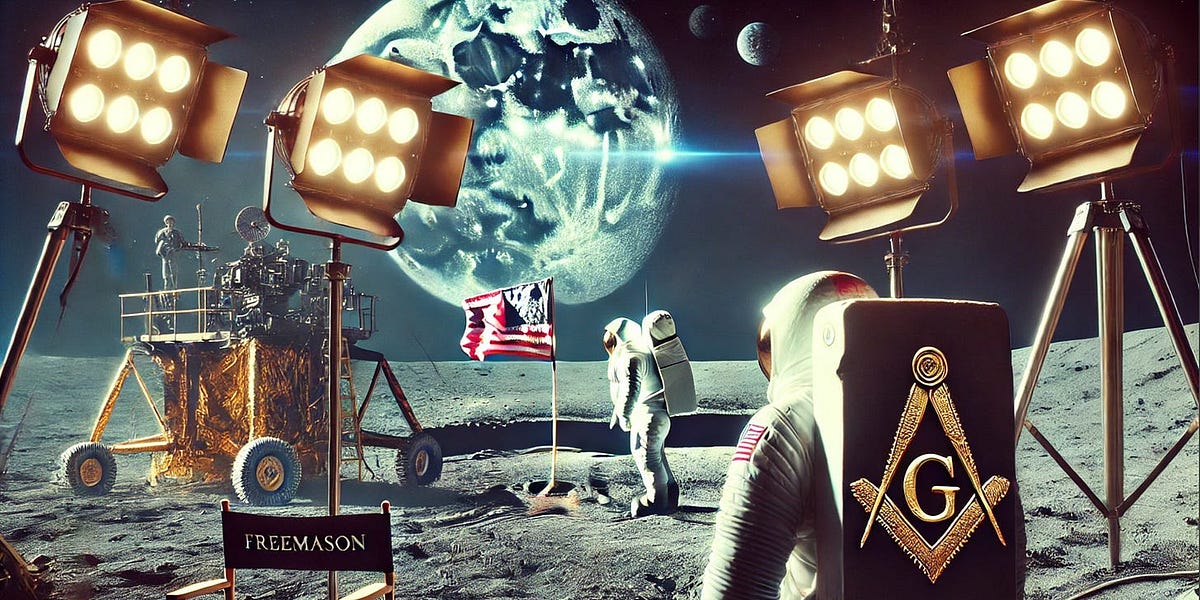

I agree overall ... but there has been technology that has been lost and rediscovered.
For instance there's a way of combining limestone and concrete to make it much stronger that was only recently discovered:
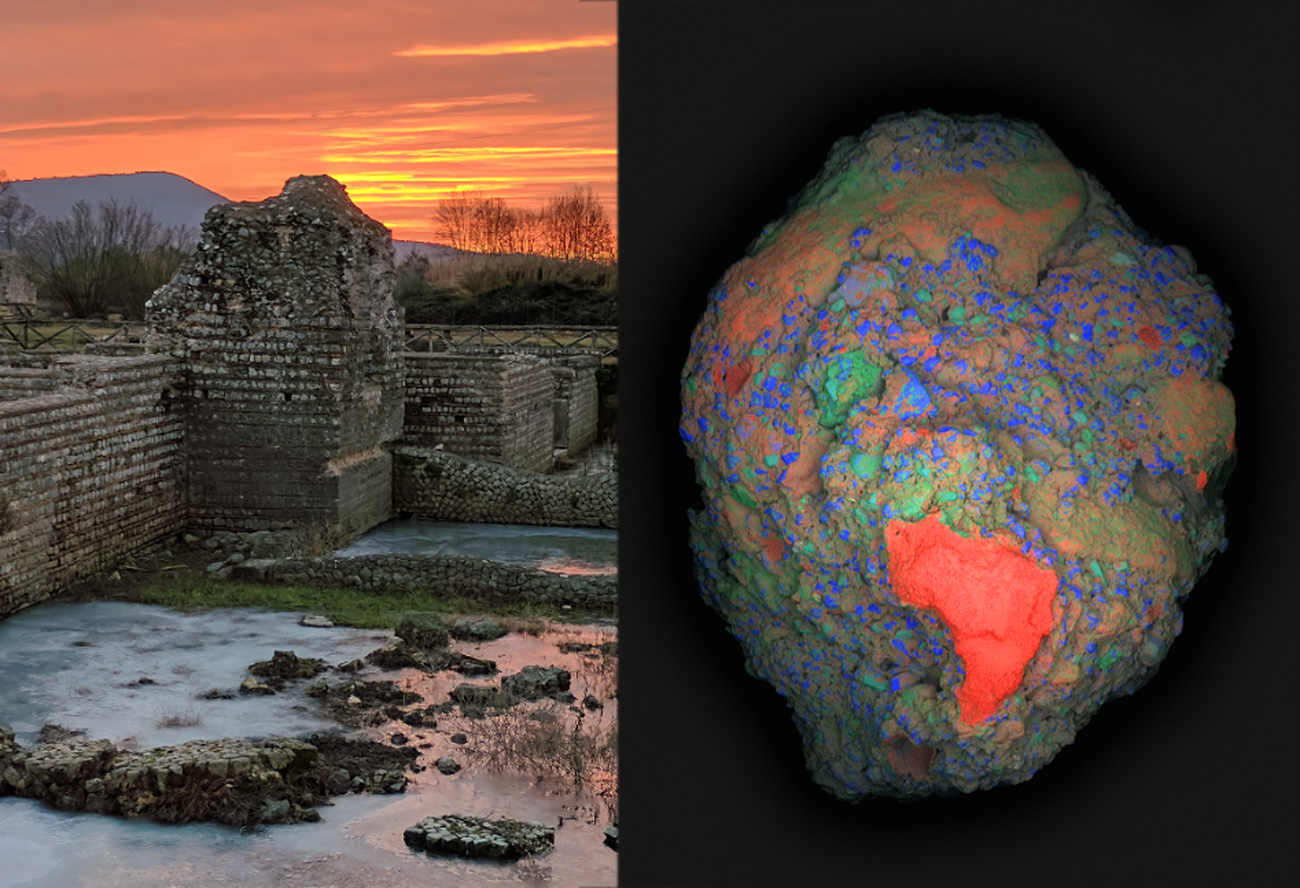
Riddle solved: Why was Roman concrete so durable?
Researchers have discovered ancient Roman concrete-manufacturing strategies that incorporated self-healing. Applying this knowledge toward modern cement production, they hope to improve the material’s environmental impact.
The issue is that he says it's the first time in human history that technology of the past is greater. From a blanket perspective that's not a true statement. It's truthy. We still don't know how they built the pyramids or even stonehenge.
In Genesis, the way Earth is described, it sounds like the Universe not the Planet.Doesn't mean the Earth is flat btw.
Otherwise, how can the Earth be without form or void?
Why else would God create the Earth before the Sun and Moon?
Earth is name for both the Universe and the Planet we are on. I think.
The Firmament is the edge of the Universe. Heaven isn't in the clouds, it's the edge of the Universe.
God creates space, then he creates light, which we call "the big bang". Then something I don't understand. Then God separates the edge of the Universe from whatever is outside it with Heaven. Then he gathers "waters" which could refer to molten rock or literal water, to create a planet.
Verse 1 says he created the Earth and 2 says it was without form.
But Verse 10 refers to a different Earth that is dry land.
These are clearly two different Earths.
Therefore, space might be flat, in which case the Universe is infinite. I think? I don't remember the math on that. Curved space would prove the Universe is finite, but I don't think the reverse is necessarily true.
Genesis 1:1-18
1 In the beginning God created the heaven and the earth.2 And the earth was without form, and void; and darkness was upon the face of the deep. And the Spirit of God moved upon the face of the waters.
3 And God said, Let there be light: and there was light.
4 And God saw the light, that it was good: and God divided the light from the darkness.
5 And God called the light Day, and the darkness he called Night. And the evening and the morning were the first day.
6 And God said, Let there be a firmament in the midst of the waters, and let it divide the waters from the waters.
7 And God made the firmament, and divided the waters which were under the firmament from the waters which were above the firmament: and it was so.
8 And God called the firmament Heaven. And the evening and the morning were the second day.
9 And God said, Let the waters under the heaven be gathered together unto one place, and let the dry land appear: and it was so.
10 And God called the dry land Earth; and the gathering together of the waters called he Seas: and God saw that it was good.
11 And God said, Let the earth bring forth grass, the herb yielding seed, and the fruit tree yielding fruit after his kind, whose seed is in itself, upon the earth: and it was so.
12 And the earth brought forth grass, and herb yielding seed after his kind, and the tree yielding fruit, whose seed was in itself, after his kind: and God saw that it was good.
13 And the evening and the morning were the third day.
14 And God said, Let there be lights in the firmament of the heaven to divide the day from the night; and let them be for signs, and for seasons, and for days, and years:
15 And let them be for lights in the firmament of the heaven to give light upon the earth: and it was so.
16 And God made two great lights; the greater light to rule the day, and the lesser light to rule the night: he made the stars also.
17 And God set them in the firmament of the heaven to give light upon the earth,
18 And to rule over the day and over the night, and to divide the light from the darkness: and God saw that it was good.


